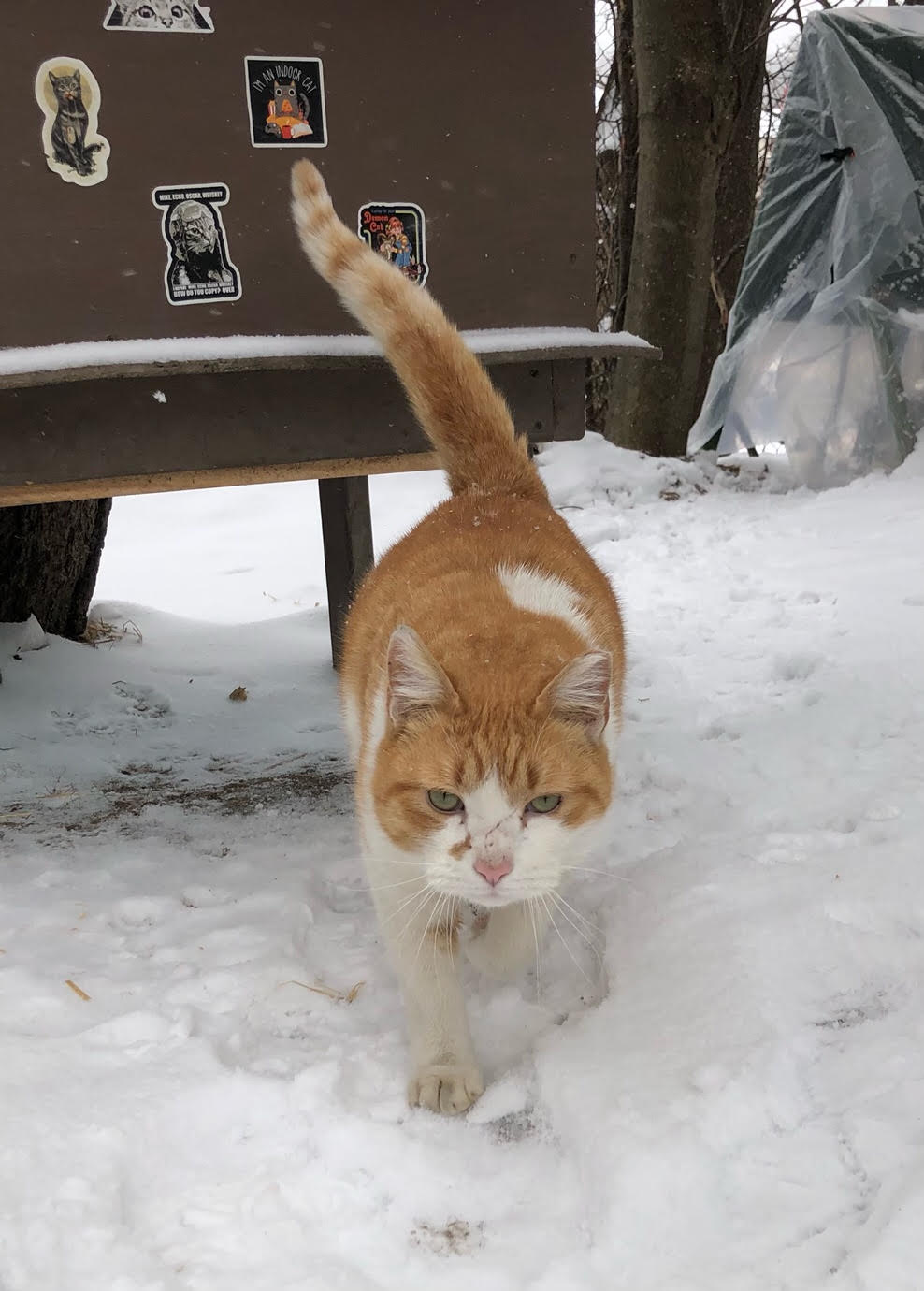Cat caretakers clash with College over future for feral felines
March 1, 2023

Seven years ago, former Town Clerk Mary Kennedy learned there were 10 feral cats living on the hill behind Jesup Hall. Ever since, she has diligently looked after them — waking up at 6:30 a.m. to bring them food and creating feeding schedules for substitute caretakers when she heads to Florida every winter. When the College asked her to relocate the felines, Kennedy sprang into action, campaigning for the cats to stay.
When Kennedy first heard that the cats — who were kittens at the time — were roaming near Spring Street, she sent her son to bring them warm food. To her surprise, her son found that the cats were cozily living in a small wooden shelter in the trees behind Jesup. The next day, Kennedy left a note on the shelter, offering to help take care of the cats in whatever way she could. A student at the College responded to the note.
The student, who was living off campus at the time, told her that he had found the cats — which he suspected were left by former students — and reached out to Animal DREAMS, an organization which works to promote humane care for feral cats in the Berkshires. Animal DREAMS spayed and neutered the animals, relocated five to local families, built a small shelter, and then returned the rest to their perch overlooking Blue Mango and Spice Root. For the next two years, Kennedy and the student looked after the cats together, purchasing cat food and feeding the animals, until the student graduated and Kennedy took over full responsibility.
By 2021, three of five cats — named Vinny, Momma, and Baby Kitty — remained. That winter, Karen Falk, a Town resident who helped look after the cats while Kennedy was out of town, asked College employees about installing an electrical outlet in a post near the shelter to power heating pads out of concern for the cats’ warmth during harsh Williamstown winters. Falk offered to fund the installation, but she was told it wasn’t possible because the warmth might attract other critters. In response, the cats’ caretakers plugged a cord into the back of Jesup without asking for permission.
The following December, however, there was no power in the outlet, and Kennedy reached out again to try to find another solution. The College told her to evict the cats by the end of January 2023.
Kennedy was furious. “Relocating feral cats is not always possible because their natural trait will be to go back to where they originated,” she said. After further email correspondence with the College’s senior staff, the deadline was moved to June 30, 2023.
“I worked in a veterinary hospital for 27 years,” said Val Ross, another Town resident who has been helping Kennedy look after the cats. “I’ve done rescue for animals and wildlife my whole life, and this just seems inhumane.”
Chief Communications Officer Jim Reische said that the College had other considerations to take into account.
“If you look at this from the perspective of what’s in the interest of feral cats, it’s often best to let them stay where they are and just take care of themselves,” Reische acknowledged. “That decision becomes fundamentally different when you’re on campus… The question of what is best for the cats that is also acceptable to the College is a different calculus.”
When deciding the best course of action for the College, Reische said that senior staff considered both the safety of the cats and other animals. “We think it’s responsible to not have wild animals running around on campus,” he said.
Senior staff were cognizant of the precedent they could set if they let the animals stay. “There isn’t a policy that would specifically govern this situation,” Reische said. “This was, so far, unique.”
While Reische said that there was little the College could do to prevent similar situations from arising in the future, he urged students to be responsible with their pets. “Kids, please don’t abandon your cats,” he said.








